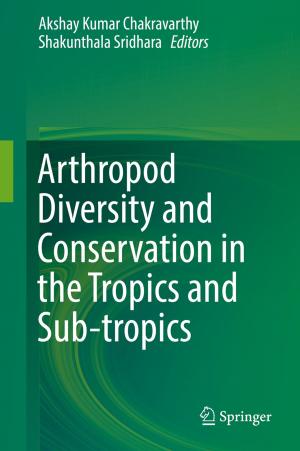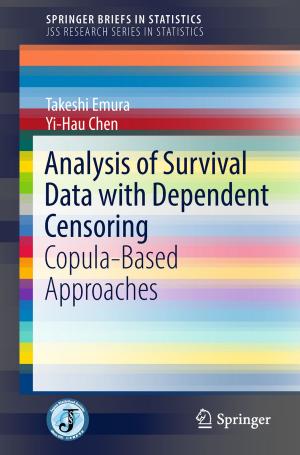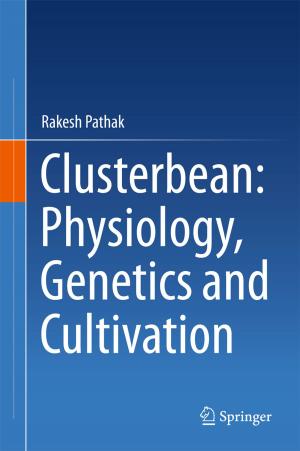Role of Rhizospheric Microbes in Soil
Volume 1: Stress Management and Agricultural Sustainability
Nonfiction, Science & Nature, Science, Biological Sciences, Microbiology, Technology, Agriculture & Animal Husbandry| Author: | ISBN: | 9789811084027 | |
| Publisher: | Springer Singapore | Publication: | May 14, 2018 |
| Imprint: | Springer | Language: | English |
| Author: | |
| ISBN: | 9789811084027 |
| Publisher: | Springer Singapore |
| Publication: | May 14, 2018 |
| Imprint: | Springer |
| Language: | English |
In any ecosystem, plant and microbe interaction is inevitable. They not only co-exist but also support each other’s survival and provide sustenance in stressful environments. Agro-ecosystems in many regions around the globe are affected by high temperatures, soil salinity/alkalinity, low pH and metal toxicity. High salinity and severe draught are other major constraints affecting agricultural practices and also plants in the wild.
A major limiting factor affecting global agricultural productivity is environmental stresses. Apart from decreasing yield, they also have a devastating impact on plant growth. Plants battle with various kind of stresses with the help of symbiotic associations with the rhizospheric microbes. Naturally occuring plant-microbe interactions facilitate the survival of plants under these stressful conditions.
The rhizosphere consists of several groups of microbes, plant growth-promoting bacteria (PGPB) is one such group of microbes that assists plants in coping with multiple stresses and also promote plant growth. These efficient microbes support the stress physiology of the plants and can be extremely useful in solving agricultural as well food- security problems.
This book provides a detailed, holistic description of plant and microbe interaction. It elucidates various mechanisms of nutrient management, stress tolerance and enhanced crop productivity in the rhizosphere, discussing The rhizospheric flora and its importance in enhancement of plant growth, nutrient content, yield of various crops and vegetables as well as soil fertility and health. Divided into two volumes, the book addresses fundamentals, applications as well as research trends and new prospects for agricultural sustainability. Volume 1: Stress Management and Agricultural Sustainability, includes chapters offering a broad overview of plant stress management with the help of microbes. It also highlights the contribution of enzymatic and molecular events occurring in the rhizosphere due to plant microbe interactions, which in turn help in the biological control of plant disease and pest attacks. Various examples of plant microbe interaction in rhizospheric soil are elaborated to facilitate the development of efficient indigenous microbial consortia to enhance food and nutritional security.
Providing a comprehensive information source on microbes and their role in agricultural and soil sustainability, this timely research book is of particular interest to students, academics and researchers working in the fields of microbiology, soil microbiology, biotechnology, agronomy, and the plant protection sciences, as well as for policy makers in the area of food security and sustainable agriculture.
In any ecosystem, plant and microbe interaction is inevitable. They not only co-exist but also support each other’s survival and provide sustenance in stressful environments. Agro-ecosystems in many regions around the globe are affected by high temperatures, soil salinity/alkalinity, low pH and metal toxicity. High salinity and severe draught are other major constraints affecting agricultural practices and also plants in the wild.
A major limiting factor affecting global agricultural productivity is environmental stresses. Apart from decreasing yield, they also have a devastating impact on plant growth. Plants battle with various kind of stresses with the help of symbiotic associations with the rhizospheric microbes. Naturally occuring plant-microbe interactions facilitate the survival of plants under these stressful conditions.
The rhizosphere consists of several groups of microbes, plant growth-promoting bacteria (PGPB) is one such group of microbes that assists plants in coping with multiple stresses and also promote plant growth. These efficient microbes support the stress physiology of the plants and can be extremely useful in solving agricultural as well food- security problems.
This book provides a detailed, holistic description of plant and microbe interaction. It elucidates various mechanisms of nutrient management, stress tolerance and enhanced crop productivity in the rhizosphere, discussing The rhizospheric flora and its importance in enhancement of plant growth, nutrient content, yield of various crops and vegetables as well as soil fertility and health. Divided into two volumes, the book addresses fundamentals, applications as well as research trends and new prospects for agricultural sustainability. Volume 1: Stress Management and Agricultural Sustainability, includes chapters offering a broad overview of plant stress management with the help of microbes. It also highlights the contribution of enzymatic and molecular events occurring in the rhizosphere due to plant microbe interactions, which in turn help in the biological control of plant disease and pest attacks. Various examples of plant microbe interaction in rhizospheric soil are elaborated to facilitate the development of efficient indigenous microbial consortia to enhance food and nutritional security.
Providing a comprehensive information source on microbes and their role in agricultural and soil sustainability, this timely research book is of particular interest to students, academics and researchers working in the fields of microbiology, soil microbiology, biotechnology, agronomy, and the plant protection sciences, as well as for policy makers in the area of food security and sustainable agriculture.















